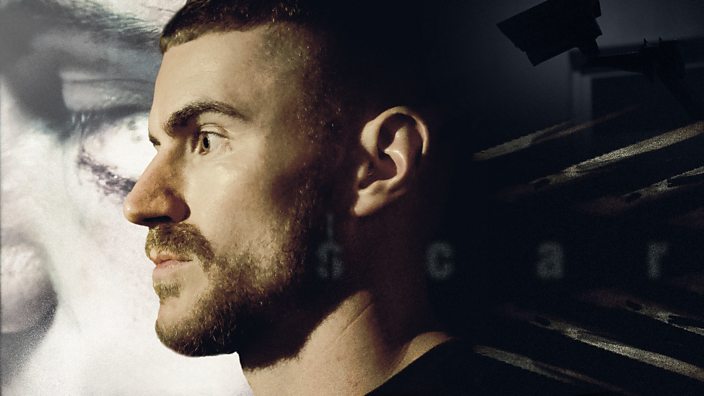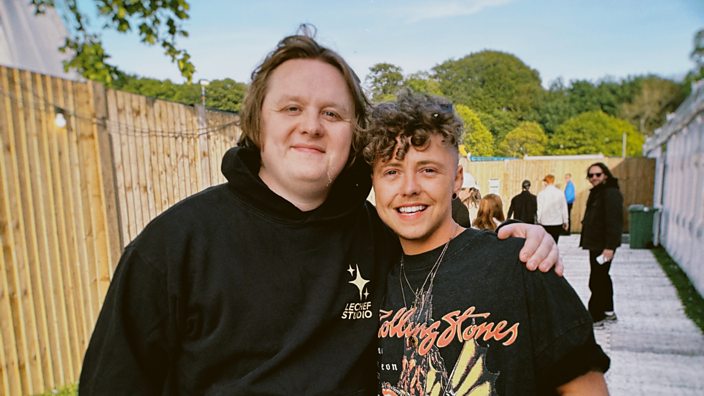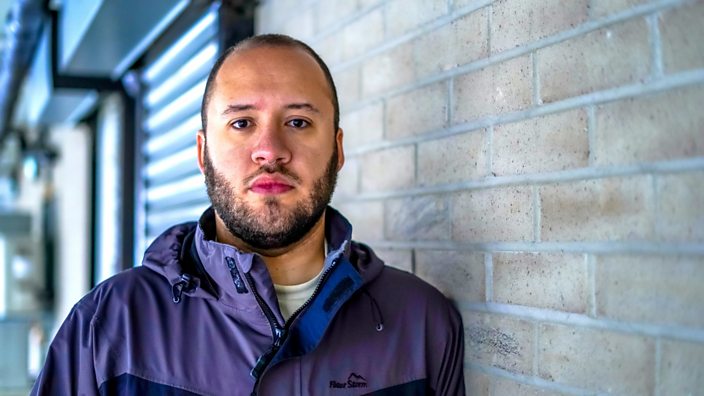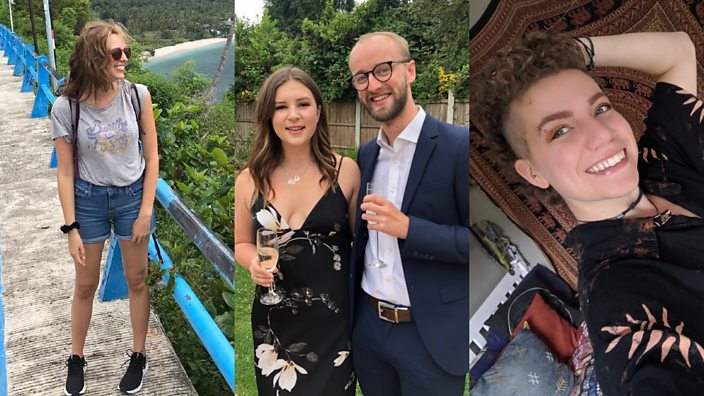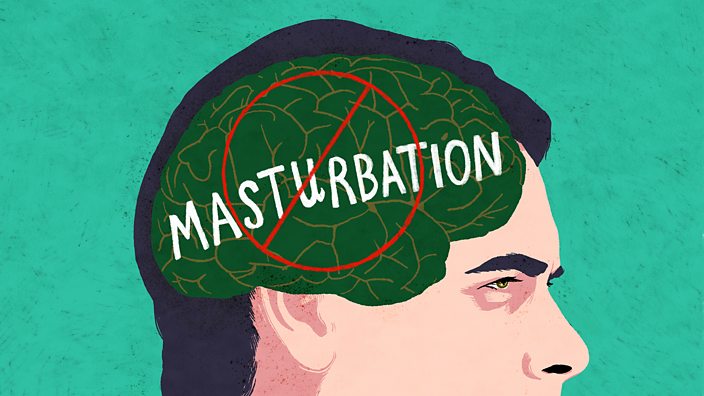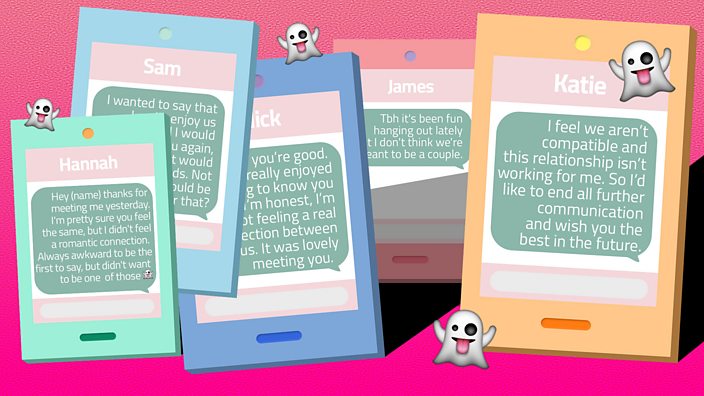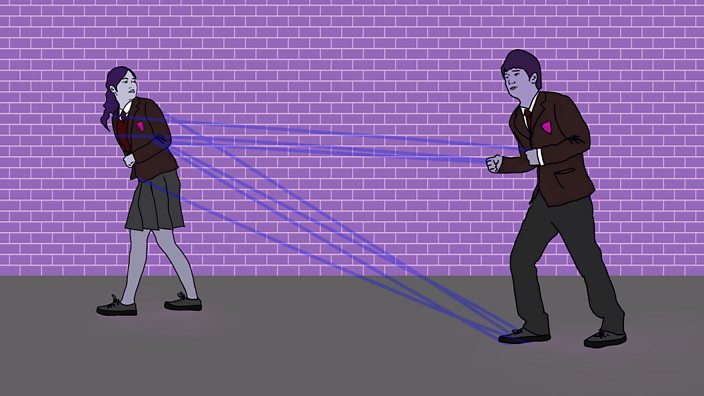 BBC / EMMA LYNCH
BBC / EMMA LYNCHCoercive control: 'I was 16 and thought it was normal'
Contains upsetting details.
In September, the government made learning about coercive control at school compulsory. The difference between a healthy relationship and an abusive one isn't always obvious - especially when the lasting impact isn't as visible as a bruise - but it can be just as damaging.
When Sarah* was nearly 16 she started getting close to a boy in her year at school, called Zach*.
After talking for a few weeks he invited her to go to a gig with him, she was nervous at first because she wasn't used to going out on her own – so she asked if her friends could come too.
"I want it to be just us alone," she recalls him saying. "This is a now-or-never opportunity for us to be together."
Sarah was really starting to like Zach and when he kept inviting her to do stuff, just the two of them, she knew he felt the same way. So even though she was scared about walking alone at night, she'd go to spend time with him.
A few months later they were officially a couple.
Before a house party they were going to, Sarah was trying on outfits. "That one's a bit too revealing," he said. Trusting Zach's opinion, Sarah opted for a different dress.
When Sarah would talk to other guys in her year, Zach started to say she was trying to make him jealous.
"Why else would you be talking to him?"
She was sure it was innocent small talk but maybe he was right if it made him feel that way, she thought.
Zach then started experimenting with drugs, taking class As regularly. So Sarah told him she was concerned about him.
"Stop being so controlling."
Every time she brought up the subject, Zach accused her of trying to control him. One night she googled, "Am I a controlling person?"
The more time Sarah spent with Zach, the less she saw of her friends. Zach said that was normal at the start of a new relationship.
"I didn't like your friends anyway."
A-Level results quickly came around. Zach got two As and a B, Sarah got an A and two Bs.
"You know, that was expected."
Sarah got into her first-choice university, while Zach decided to resit some exams. "Don't go, why would you want to leave me here?" he asked.
As he grew more desperate for Sarah to not go to university, Zach would say there was no point in her going.
"It's a waste of money. I'm going to be the breadwinner, I couldn't live with myself otherwise."
Sarah, now 23, says the first few years of their relationship "weren't bad."
"What I mean is, it wasn't as bad as it got."
What is coercive control?
Coercive control often can't be pinned down to one event in a relationship, but is the accumulation of words, behaviours and threats that humiliate, isolate and control the victim - leaving them without freedom and very little of 'themselves' left.
Victims describe experiencing emotional abuse as your sense of self-confidence and autonomy being dismembered, until the only 'normality' you know is the abuser.
The nature of coercive control means that being able to see the pattern of abuse for yourself can be incredibly difficult and in some cases near impossible.
So how do you know when clingy and jealous becomes controlling and coercive? And when does that become a criminal offence? Those are some of the questions that BBC Three documentary, Is This Coercive Control?, tries to unpick.
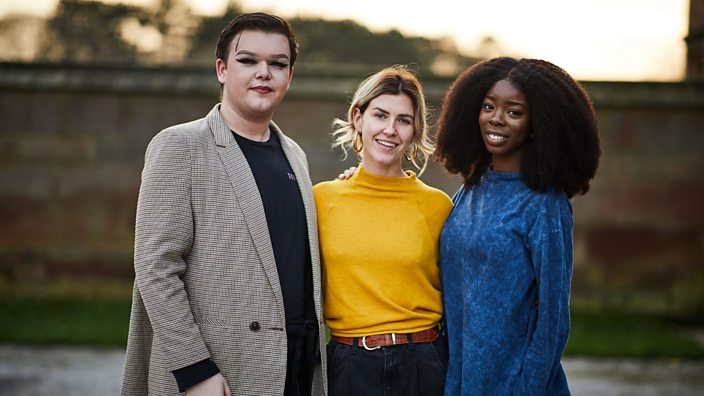 BBC
BBCIn the new documentary, a group of young people discuss and debate whether or not a fictional case, not related to Sarah and Zach, is legally coercive control. Throughout the show the common stigmas and myths around emotional abuse are highlighted and dispelled.
Would you be able to spot coercive control before it's too late?
'He said he could snap my neck if he wanted to'
To raise awareness of all forms of abuse, the government made 'relationship education' compulsory in schools - coming into action in September 2020. The syllabus includes teaching students to identify financial, emotional and physical abuse in teenage and adult relationships.
This is something Sarah says she wishes she had access to before her relationship with Zach. For her, "you're beautiful" soon escalated to "you're lucky I'm with you because no one else would want you."
Rolling out of bed and getting dressed required detailed outfit approval from Zach. "He really convinced me that it was wrong if I didn't show him what I was wearing."
And seeing her friends became non-existent, after her boyfriend secretly messaged them saying, "by the way, Sarah hates you and talks about you behind your back."
Zach often said he had no money for food or to live so Sarah says she constantly sent him large sums of money. But then she'd be punished.
"You're just doing it to make me feel bad about myself," he said.
At university, if she wanted to go on a night out, Zach told her she couldn't go and repeatedly told her if she did she "would get raped and drugged by a stranger" and would cause Zach too much worry and sleeplessness.
If she did go out, which was rare, she would be overwhelmed with messages and calls asking where she was and what she was doing.
"I started noticing that my life was really restricted at university," Sarah recalls.
"I felt like I couldn't join in things or make friends. I could tell my flat mates thought [our relationship] was weird, because I was always asking him for permission, but I thought it was normal. He persuaded me it was normal."
Before Sarah knew it, the put-downs that stung became fears for her safety.
The time she remembers most, Zach was visiting her at university. She had paid for him to come and see her and they'd spent the day together. She was curled up on Zach’s chest in bed. That was when he told her, "I could just snap your neck now, if I wanted to."
Sarah says the pressure to do as she was told seeped into the intimate parts of their relationship, "he'd talk a lot about how he watched quite graphic and abusive porn."
"You won't do it in the bedroom so I have to get it elsewhere," he said.
Sarah feared for her life on more than one occasion.
In his rages Zach would throw chairs, smash things and threaten her like it was as normal as kissing her.
"If I reached out and touched him to try and calm him down he'd shove me out the way," Sarah says.
"I didn't want to go and see him anymore. I was scared of him."
It wasn't until her third year of university, when her moments of "freedom" were running out, that Sarah felt leaving Zach was an option.
The moment that Sarah says stands out, is when her housemate sat her down and said she was really worried the controlling relationship would ruin her life.
"I was really unhappy and I didn't realise it. A relationship shouldn't make you doubt yourself every day."
"I really thought, 'Do I want this for the rest of my life?'"
Unfortunately, like many abusive relationships - the abuse didn't stop when the relationship did.
What does the law say?
Two women are killed each week as a result of domestic violence. These cases are sometimes linked with coercive control, according to criminology expert Dr Jane Monckton Smith. Coercive control can affect any gender or sexuality - 13% of callers to the ManKind Initiative helpline are seeking support for this kind of abuse.
Coercive control became illegal in 2015 under the offence of "controlling or coercive behaviour in an intimate or family relationship."
In order to pass the threshold for it to be criminal, the coercive control must cause someone to fear that violence will be used against them on at least two occasions; or cause them serious alarm or distress which has a substantial adverse effect on their usual day-to-day activities.
While it is mostly prosecuted alongside other offences like domestic violence, more individual cases are starting to make it to court.
Barrister Clare Ciborowska, who appears in the documentary, tells BBC Three she's seeing more and more cases of coercive control involving young people aged 16 and upwards.
"When you're young nobody goes into a relationship expecting it to be abusive, but anyone can find themselves in that position. Sometimes these little, subtle signs can start creeping in - that can happen over a long period of time.
"By that point, you're invested in the relationship when things get worse. So it's important that young people know what coercive control is, can spot the sings early on and feel able to talk about it."
In some cases, Clare says the perpetrator avoids physical violence because it leaves an obvious mark.
"They are quite manipulative and make sure that they don't commit any physical crime, because it's much harder to be detected if it's just the coercive control aspect, even though it still has a huge adverse effect on the victim psychologically."
When Sarah travelled to break up with Zach she was terrified, "I felt so responsible for his life."
Having no idea how he would take the break-up, Sarah told him on the street because she wanted to be in public with other people around, so he couldn't hurt her.
For months after she broke up with him, Zach continued to harass her.
"If I didn't respond to him, he would threaten to kill himself."
When she blocked his number, Zach turned up on the doorstep of her home. And another time, at her mum's house.
"I realised I couldn't fully escape until I moved and he didn't know my address any more."
More than a year since her experience ended, Sarah has thrown herself into socialising, she's in a happy relationship and, she says, she's starting to feel like herself again.
Are you experiencing coercive control?
According to a leading domestic abuse charity, some common examples of coercive behaviour are:
■ Isolating you from friends and family
■ Depriving you of basic needs, such as food
■ Monitoring your time
■ Monitoring you via online communication tools or spyware
■ Taking control over aspects of your everyday life, such as where you can go, who you can see, what you can wear and when you can sleep
■ Depriving you access to support services, such as medical services
■ Repeatedly putting you down, such as saying you're worthless
■ Humiliating, degrading or dehumanising you
■ Controlling your finances
■ Making threats or intimidating you
*Names have been changed.
Sources of support are available here.
Originally published on 27 October 2020.
